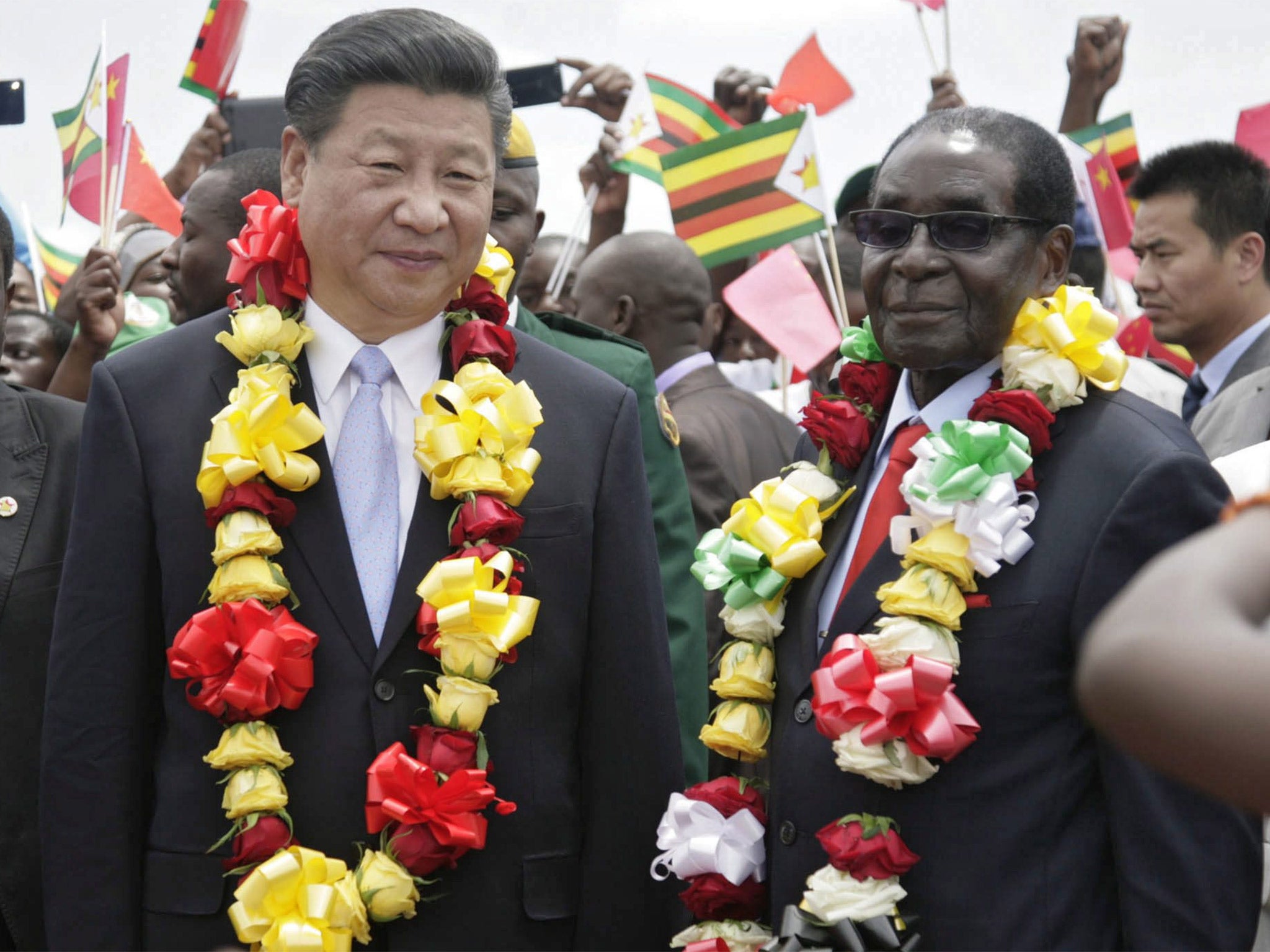China is wise in its investment in growing African economies, while the West risks being left behind
The ties of the Commonwealth should be a help to Britain, not an embarrassment

Your support helps us to tell the story
From reproductive rights to climate change to Big Tech, The Independent is on the ground when the story is developing. Whether it's investigating the financials of Elon Musk's pro-Trump PAC or producing our latest documentary, 'The A Word', which shines a light on the American women fighting for reproductive rights, we know how important it is to parse out the facts from the messaging.
At such a critical moment in US history, we need reporters on the ground. Your donation allows us to keep sending journalists to speak to both sides of the story.
The Independent is trusted by Americans across the entire political spectrum. And unlike many other quality news outlets, we choose not to lock Americans out of our reporting and analysis with paywalls. We believe quality journalism should be available to everyone, paid for by those who can afford it.
Your support makes all the difference.Little more than a month ago Britain rolled out a long red carpet for the arrival of China’s President Xi Jinping. A banquet at Buckingham Palace; an address to MPs and peers at Westminster; tea with the heir to the throne; a white tie bash at Guildhall – this was a state visit, and then some. Critics of China’s grim human rights record were largely kept in the background as high-profile deals were announced and government ministers lined up to tell us how we were to be China’s “best partner in the West”.
Maybe that prophecy will come to pass. But it might also have come as something of a shock that just a few weeks later Mr Xi has been merrily receiving a similar level of hospitality in Zimbabwe. And he won’t be troubled there by talk of improving human rights. Writing in the Herald, the official mouthpiece of Robert Mugabe’s state, the Chinese President celebrated the two countries’ “deep and firm” friendship.
Detractors will say Mr Xi is showing his true colours, hob-nobbing with a regime that is even further beyond the pale than his own. Some in Britain will feel retrospectively abased at the welcome he was given here. In fact, our primary concern ought to be that Mr Xi is a good deal more realistic about the direction of the world’s economic development than our own Government.
Today, China’s President will move on for meetings with Jacob Zuma, the South African President, ahead of a summit with other African leaders at the Forum on China-Africa Co-operation in Johannesburg. A glut of new Chinese investments in South Africa have already been announced and there will be more to come, as Communist Party officials endeavour to take advantage not only of Africa’s vast reserves of fossil fuels and minerals, but also the continent’s growing cadre of increasingly well-educated, yet relatively low-paid, workers.
For China, this policy makes obvious sense. It already has friendly ties with many African states, having positioned itself half a century ago as a leader of the “Third World” and backed independence movements seeking to throw off the yoke of colonialist rule. It has a need for raw materials unmatched by anyone else. Most crucially, many of the states with which China is prepared to deal, the UK and other countries in the West are not.
To a certain extent, this is the consequence of a genuinely ethical concern about not wishing to give succour to repellent and deeply corrupt regimes. There also remains a degree of trepidation about displaying any hint of superior, “colonial” attitudes. Britain’s history in Africa frames its present relationship with the continent in a way that – perhaps rightly – places the UK on the back foot.
But if our hesitancy is both understandable and in some cases admirable, it is vital that advanced democracies are not overly tentative when it comes to African investment. After all, Nigeria, for instance, may be the China of tomorrow – by 2050, its population is expected to have surpassed that of the United States; the number of people in Africa as a whole is projected to double and more. Technological advances are gaining momentum – albeit that progress is hugely variable from country to country.
The ties of the Commonwealth should be a help to Britain, not an embarrassment. And there are sufficient opportunities for investment in Africa which do not rely on the maintenance of authoritarian governments. But critically Britain needs to have “skin in the game”. Otherwise we may find, 50 years from now, that being China’s “best partner in the West” doesn’t really amount to very much.
Join our commenting forum
Join thought-provoking conversations, follow other Independent readers and see their replies
Comments